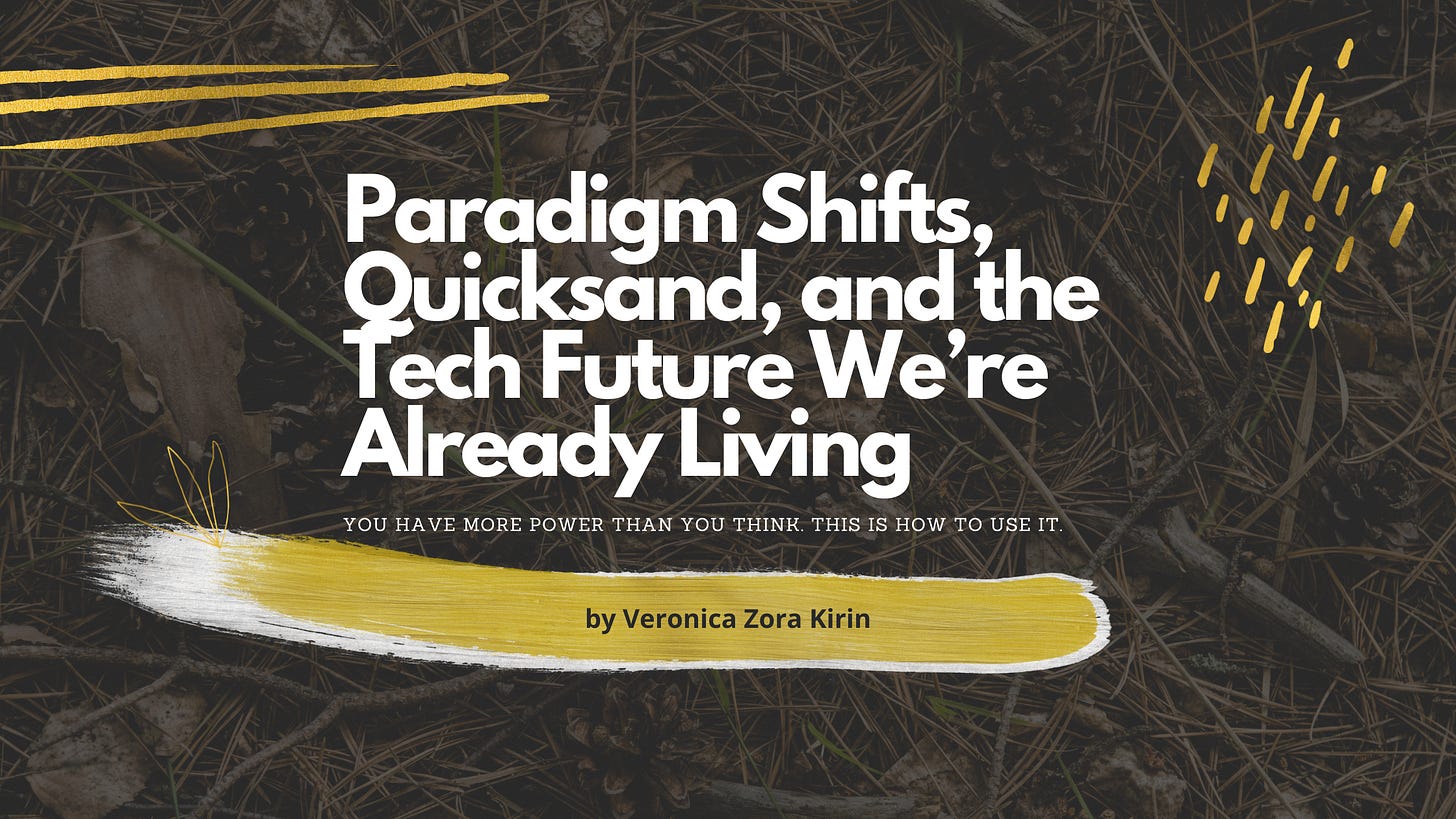Paradigm Shifts, Quicksand, and the Tech Future We’re Already Living
When you feel overwhelmed, the next steps are just an act away.
When people talk about technology, they often talk about “the future.” But the truth is: paradigm shifts don’t arrive with a date stamp. They don’t politely announce their presence. They happen in motion, while we’re living through them.
I’ve studied two of the biggest cultural shifts of our time: the high-tech revolution that remade the world our grandparents knew, and the global pandemic that redrew the boundaries of daily life. Both offered the same lesson: a paradigm shift is like quicksand. If you stand still, you sink. If you move with it, you discover new ground.
Right now, technology is shifting under our feet again. AI, blockchain, decentralized social networks — these aren’t “coming trends.” They’re active cultural forces, reshaping how we organize, who has power, and what “agency” even means. And just like in every shift before, most of us are caught between fascination and fear.
The question isn’t whether the shift is happening. It’s how we choose to move inside it.
In my research, I’ve come to see three truths that apply across every paradigm shift:
Exclusion comes first. Paradigm shifts start with a narrow group — often the wealthy or well-connected — before filtering out to the broader public. This isn’t inevitable, it’s designed. The structures of privilege shape who gets early access.
Resistance feels safe, but it costs you agency. Every generation has a threshold for what they’ll adopt. For the Greatest Generation, it was autonomous vehicles. For some today, it’s blockchain or AI. But turning away doesn’t stop the shift — it only guarantees you’ll be left reacting rather than shaping.
Shifts always feel chaotic — until hindsight makes them seem inevitable. We look back at the internet as though it was destined. But in the moment, it was messy, confusing, and full of dead ends. The same is true now.
So where does this leave us? For me, the work is about helping people — especially those historically excluded from power — claim their footing in the quicksand. Because while paradigm shifts unsettle, they also open cracks in the old order. And those cracks can be places where new, more equitable systems take root.
I’ve seen this in my interviews with the Greatest Generation, who reminded me that technological change always comes with human costs and human possibilities. I’ve seen it in the pandemic, where communities found ways to reimagine connection when the old systems broke. And I see it now, in how women and marginalized voices are beginning to carve space in Web3 and AI — even though those industries weren’t built with them in mind.
Paradigm shifts are liquid culture. And the liquid is rising. The choice is not whether to enter it, but whether to let it sweep you along or to learn how to swim.
👉 My invitation: instead of resisting, get curious. Ask what’s breaking open. Ask where you have agency to act. And ask, always, who else gets to come with you?
Because no paradigm shift is neutral. But every one is a chance to build differently.


